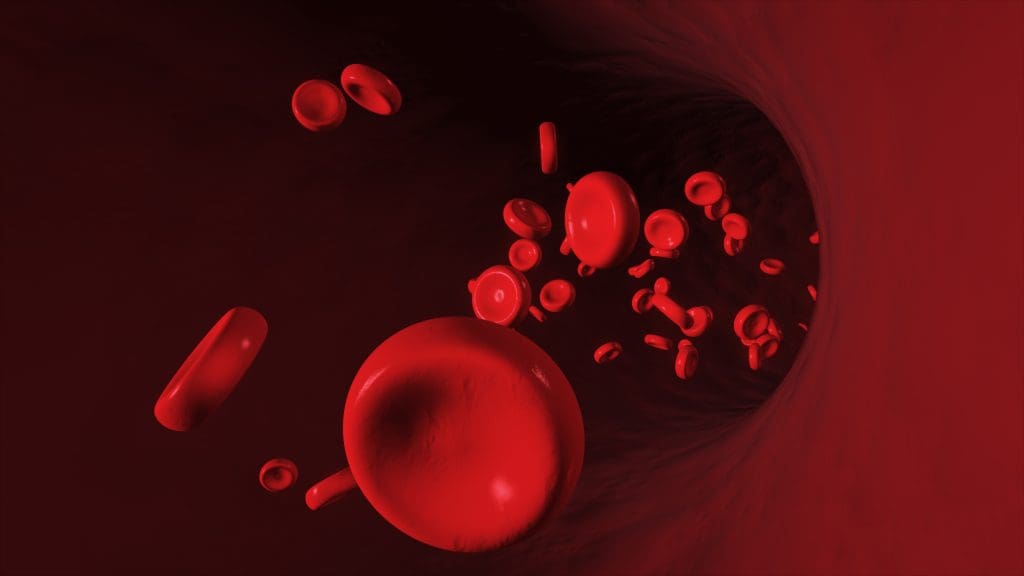Did you know that about 270 million people worldwide carry thalassemia? This is a genetic disorder that affects how the body makes hemoglobin. It’s important to know who carries this condition and what it means for family planning and early treatment. Who is the carrier of thalassemia?
Raising genetic awareness is crucial for identifying thalassemia carriers. Finding thalassemia carriers is key to managing the condition. It also helps prevent passing it to future generations through genetic inheritance.

Key Takeaways
- Thalassemia is a genetic disorder that affects hemoglobin production.
- Carriers of thalassemia are at risk of passing the condition to their offspring.
- Genetic testing is essential for identifying thalassemia carriers.
- Early intervention can significantly improve the quality of life for individuals with thalassemia.
- Understanding genetic inheritance is crucial for family planning.
What Is a Thalassemia Carrier?
Knowing about thalassemia carriers is key for family planning. A thalassemia carrier has one normal and one mutated gene. This affects how they make hemoglobin, a protein in red blood cells.
Having the thalassemia trait or thalassemia minor means you’re a carrier. You usually don’t have the severe symptoms of thalassemia disease. But, you can pass the mutated gene to your kids.
Thalassemia Trait vs. Thalassemia Disease
It’s important to know the difference between the thalassemia trait and thalassemia disease. The trait means you have one normal and one thalassemia gene. Disease happens when you have two thalassemia genes, leading to serious health problems.
Thalassemia disease is split into beta-thalassemia major (Cooley’s anemia) and alpha-thalassemia major. Both need a lot of medical care.
Carrier Status and Health Implications
Being a thalassemia carrier usually doesn’t cause big health issues. But, it can affect family planning. Carriers might have mild anemia or no symptoms at all. The main worry is passing the thalassemia gene to their kids.
It’s important to understand the autosomal recessive inheritance pattern. If both parents are carriers, there’s a 25% chance their child will have thalassemia disease. There’s a 50% chance the child will be a carrier like both parents. And a 25% chance the child won’t have the disease or be a carrier.
The Genetics of Thalassemia Inheritance
thalassemia genetics
Thalassemia is passed down in an autosomal recessive pattern. This means both parents must carry the gene for a child to have it. Knowing this helps us understand the risk of passing it to the next generation.
Autosomal Recessive Inheritance Pattern
In autosomal recessive inheritance, a person needs two defective genes to have the condition. Carriers have one normal and one defective gene. They usually don’t show the full symptoms but can pass the gene to their kids.
If both parents are carriers, there’s a 25% chance with each pregnancy that the child will inherit two defective genes and have thalassemia. There’s a 50% chance the child will inherit one defective gene and be a carrier. And a 25% chance the child will have two normal genes and not be affected or a carrier.
Genetic Mutations Associated with Thalassemia
Thalassemia is caused by mutations in genes that make hemoglobin. These mutations can reduce or stop the production of the alpha or beta chains of hemoglobin. This leads to alpha-thalassemia or beta-thalassemia.
Genetic testing has improved in detecting thalassemia-causing mutations. This helps in better risk assessment and management. Knowing the specific genetic mutations helps predict the condition’s severity and guides reproductive decisions.
Prevalence of Thalassemia Carriers Worldwide
thalassemia carrier geographic distribution
Thalassemia carriers are not spread evenly around the world. They are more common in certain groups. The number of carriers varies a lot from one place to another.
High-Risk Populations and Geographic Distribution
Thalassemia carriers are more common in some ethnic and geographic groups. Countries in the Mediterranean, Africa, and Southeast Asia have the highest rates. In these areas, up to 15% of people may carry the trait.
The spread of thalassemia carriers follows the history of malaria. This is because the trait helps protect against malaria.
Thalassemia Carrier Rates in the United States
In the United States, thalassemia carriers are more common in certain groups. This is due to migration from high-risk areas. These include Mediterranean, African, and Southeast Asian communities.
To understand thalassemia carrier rates better, let’s look at some data:
| Population | Estimated Carrier Rate |
| Mediterranean | 10-15% |
| African | 5-10% |
| Southeast Asian | 8-12% |
| United States (general population) | 1-3% |
Knowing how many thalassemia carriers there are in different groups is key. It helps with health planning and awareness. It also shows why screening is important in high-risk areas.
Signs and Symptoms of Thalassemia Carriers
thalassemia carrier symptoms
Being a thalassemia carrier can affect health, but many don’t show symptoms. These are people with one normal and one mutated gene for thalassemia. They are usually healthy but can pass the condition to their kids.
Asymptomatic Nature of Carrier Status
Most thalassemia carriers don’t have big symptoms and live normal lives. It’s hard to find carriers without special tests because they don’t show symptoms.
Some key points about being a carrier include:
- Carriers don’t have the severe symptoms of thalassemia major.
- Regular blood tests might show mild anemia or small blood issues.
- Carriers are usually healthy and don’t face daily life problems because of it.
Potential Mild Symptoms in Some Carriers
While many carriers don’t show symptoms, some might have mild ones. These can include:
- Mild Anemia: Lower hemoglobin levels might cause mild tiredness.
- Pale Skin: Less hemoglobin can make skin look pale.
- Fatigue: Mild anemia can make you feel tired or weak.
These symptoms can also happen for other reasons. So, if you feel tired or pale, see a doctor to find out why.
It’s important to screen for carriers to prevent passing thalassemia to children. Early detection helps families make better choices and manage health issues.
Thalassemia Carrier Testing and Diagnosis
Carrier screening for thalassemia uses simple tests that give important health info. We suggest these tests for people with a family history or from high-risk areas.
Blood Tests for Carrier Screening
Blood tests are key for thalassemia screening. They check your blood’s hemoglobin levels and types. Complete Blood Count (CBC) and Hemoglobin Electrophoresis are common tests.
A CBC counts your blood cells and hemoglobin. Hemoglobin Electrophoresis separates hemoglobin types. It spots abnormal types linked to thalassemia.
These tests are minimally invasive. They tell if you’re a carrier. If yes, more tests might be needed to confirm and find the exact mutation.
Genetic Testing Options
Genetic testing looks at your DNA for thalassemia mutations. It’s great for carriers to know their offspring’s risk. DNA analysis checks the HBB or HBA1/2 genes for beta- and alpha-thalassemia.
Genetic testing gives detailed info but has limits. It’s wise to talk to a genetic counselor. They can explain the testing’s benefits and what the results mean for your family.
Using blood and genetic tests together gives a full picture of your carrier status. We can then guide you on family planning or health management.
The Importance of Thalassemia Carrier Screening
Thalassemia carrier screening is key in finding thalassemia early. It helps us spot carriers. This way, we can offer genetic counseling and help with reproductive health choices.
Recommended Screening Guidelines
People with a family history of thalassemia or from high-risk areas should get tested. Screening guidelines say those from Mediterranean, African, or Southeast Asian backgrounds should get tested. Thalassemia is common in these groups.
The test is a simple blood check for the thalassemia trait. Early detection is crucial for managing thalassemia. It gives people the health info they need.
| Population | Recommended Screening | Testing Method |
| Mediterranean | Yes | Blood Test |
| African | Yes | Blood Test |
| Southeast Asian | Yes | Blood Test |
Who Should Consider Carrier Testing
Those planning a family, especially with a thalassemia history, should get tested. Testing can show who might pass thalassemia to their kids. People from high-risk areas should also get screened.
Knowing your carrier status helps with family planning. We suggest talking to a healthcare provider about the benefits and risks of testing.
Understanding Your Thalassemia Carrier Status Results
Knowing your thalassemia carrier test results is key to making smart health choices. When you get your results, it’s important to understand what they mean. This knowledge helps you plan for your health and family.
Interpreting Test Results
Thalassemia carrier screening tests check your blood for hemoglobin. If you’re a carrier, you have one normal and one mutated gene. Your results might show:
- Carrier Status: Shows you have one mutated gene.
- Hemoglobin Levels: Could be slightly lower or normal.
- Mean Corpuscular Volume (MCV): May be lower, meaning smaller red blood cells.
Talking to a healthcare provider or genetic counselor is crucial to fully understand your results.
Next Steps After Positive Carrier Screening
If you’re a thalassemia carrier, several steps can help you:
- Family Planning: Talk about reproductive options with your partner, if you have one.
- Genetic Counseling: Get professional advice on risks and options for future pregnancies.
- Health Monitoring: Regular check-ups are important, especially if you have mild anemia.
A medical expert says, “Knowing your carrier status is more than just knowing your genes. It’s about taking steps for your health and your family’s future.”
“Being a thalassemia carrier doesn’t mean you’ll get the disease. But it means you should understand the risks and make informed choices.”
A genetic counselor
| Test Component | Normal Result | Carrier Result |
| Hemoglobin Level | Within normal range | May be slightly lower or normal |
| MCV | Normal | May be lower |
| Carrier Status | Not a carrier | Identified as a carrier |
By understanding your thalassemia carrier status and taking the right steps, you can make choices that positively affect your health and family planning.
Reproductive Considerations for Thalassemia Carriers
Deciding to have children can be tough for those with thalassemia. It’s important to know the risks of passing the condition to their kids. There are also different ways to have a family.
Risk Assessment for Future Children
If both parents carry the thalassemia gene, there’s a 25% chance each child will get two bad genes. This means they could have thalassemia major or intermedia. There’s also a 50% chance the child will carry the gene like the parents. And a 25% chance they won’t carry it at all.
Reproductive Options for Carrier Couples
Carrier couples have many choices. These include:
- Prenatal diagnosis: Testing the fetus for thalassemia during pregnancy.
- Preimplantation genetic diagnosis (PGD): Testing embryos for thalassemia before they’re implanted.
- Using donor gametes: Using eggs or sperm from a donor who doesn’t carry the gene.
- Adoption: Considering adoption as an alternative to biological parenthood.
Each option has its own pros and cons. Carrier couples should talk to a genetic counselor. This way, they can make a choice that fits their needs.
Common Misconceptions About Thalassemia Carriers
Many people have wrong ideas about thalassemia carriers. This shows we need to share correct info and raise awareness. Carriers often face misunderstandings that can cause worry or a false sense of safety about their health and future kids.
Medical Myths and Facts
There are many myths about thalassemia carriers. One big mistake is thinking being a carrier means you have the disease. But, being a thalassemia carrier is not the same as having thalassemia disease. Carriers usually don’t have serious symptoms but can pass the mutated gene to their kids.
Another myth is that carriers are always at risk of severe anemia. While some carriers might have mild anemia, it’s not true for all. Regular health check-ups can help manage any mild symptoms that may arise.
- Myth: Thalassemia carriers will always pass the disease to their children.
- Fact: The risk depends on the genetic status of both parents. If both are carriers, there’s a 25% chance a child will have thalassemia major.
- Myth: Thalassemia carriers are unhealthy.
- Fact: Many thalassemia carriers lead healthy lives with minimal or no health issues related to their carrier status.
Social and Cultural Misunderstandings
Thalassemia carrier status is also misunderstood in social and cultural ways. In some cultures, there’s a stigma around carrying a genetic disorder.
“Education and awareness are key to dispelling the stigma associated with thalassemia carrier status.”
Understanding the genetic aspects and implications of being a carrier helps reduce misconceptions. This promotes a supportive environment for carriers.
Cultural beliefs and family history affect how people see their carrier status. It’s important to be sensitive and give accurate, culturally aware info.
By tackling these misconceptions and raising awareness, we can support thalassemia carriers better. It’s key for healthcare providers to give clear guidance and resources. This helps carriers make informed health and family planning decisions.
Living as a Thalassemia Carrier
Being a thalassemia carrier means knowing your health status and taking steps to stay well. Many carriers live normal lives. But, some might deal with mild anemia or other health problems.
Lifestyle Considerations
For a thalassemia carrier, a healthy lifestyle is key. This includes:
- Eating a balanced diet rich in iron, vitamins, and minerals to help maintain healthy red blood cells.
- Staying hydrated by drinking plenty of water throughout the day.
- Exercising regularly to improve overall health, but consulting with a healthcare provider before starting any new exercise regimen.
- Avoiding excessive alcohol consumption and smoking, as these can negatively impact health.
Managing Mild Anemia if Present
Some carriers might have mild anemia. Managing it means:
- Monitoring iron levels through regular blood tests to ensure they’re within a healthy range.
- Increasing iron intake through diet or supplements if recommended by a healthcare provider.
- Avoiding foods that inhibit iron absorption, such as tea, coffee, and milk, when consuming iron-rich foods.
Regular health check-ups are crucial for carriers. They help monitor the condition and address any concerns quickly. By living healthily and managing anemia, carriers can enjoy active and fulfilling lives.
Genetic Counseling for Thalassemia Carriers
Genetic counseling is key for thalassemia carriers. It helps them understand their carrier status. This process looks at their genetic info to guide them on family planning risks and options.
Benefits of Professional Genetic Counseling
Genetic counseling has many benefits for thalassemia carriers. Personalized risk assessment is a big plus. It shows their chances of passing the condition to their kids. Also, counselors offer emotional support to deal with the carrier status.
Genetic counselors make complex info easy to grasp. They help carriers make smart choices about their reproductive health. They also provide support resources.
What to Expect During a Counseling Session
In a counseling session, carriers get a detailed talk about their status. It starts with a look at their medical and family history. This helps spot any risks.
The counselor will then talk about genetic testing options. They explain the test results. This includes the chance of having a child with thalassemia, based on both parents’ carrier status.
- Discussion of reproductive options, including prenatal testing and preimplantation genetic diagnosis.
- Explanation of the risks and benefits associated with each reproductive option.
- Emotional support and resources for coping with the challenges of being a thalassemia carrier.
By the end, carriers will know more about their condition. They’ll understand how to manage their health and family planning.
Advances in Thalassemia Carrier Research and Management
Medical technology has changed how we detect and manage thalassemia carriers. We’re seeing big steps forward in understanding thalassemia’s genetics and finding better screening ways.
New Testing Technologies
New genetic testing tools have come out in recent years. They help find thalassemia carriers more accurately and quickly. Some of these include:
- Next-generation sequencing (NGS) for detailed genetic checks
- Non-invasive prenatal testing (NIPT) to spot thalassemia in unborn babies
- Advanced microarray methods for spotting genetic changes
These new tests make finding carriers more accurate. They also help us learn more about thalassemia’s genetic side.
Future Directions in Carrier Management
As research keeps moving forward, we expect big changes in managing thalassemia carriers. Some possible future steps could be:
- Personalized medicine based on each person’s genetic makeup
- Gene therapy and editing to fix thalassemia-causing genes
- Better genetic counseling with advanced risk tools
These new ideas could greatly improve care for thalassemia carriers and their families.
We’re dedicated to leading in these advancements. We want to make sure thalassemia carriers get the best care and support.
Conclusion: Understanding the Importance of Thalassemia Carrier Awareness
It’s very important to raise awareness about thalassemia carriers. This helps in early detection, management, and prevention. Thalassemia carrier screening is key to finding people with the genetic mutations linked to thalassemia.
Knowing about genetic inheritance and being a thalassemia carrier helps people make smart choices about their health and family planning. Education and screening are essential in managing thalassemia. We are dedicated to helping individuals and families dealing with this condition.
We aim to offer full support and top-notch healthcare to patients from around the world. By spreading awareness about thalassemia carriers, we can all work together. This will help lower thalassemia cases and improve life for those affected.
FAQ
What does it mean to be a thalassemia carrier?
Being a thalassemia carrier means you have the thalassemia trait. This is a mild form of the condition. You might not show severe symptoms but can pass it to your kids.
How is thalassemia inherited?
Thalassemia is passed down in an autosomal recessive pattern. This means you need two bad genes to have the disease. Carriers have one good and one bad gene. They usually don’t show symptoms but can pass the bad gene to their children.
What are the signs and symptoms of being a thalassemia carrier?
Many carriers don’t show symptoms, but some might have mild anemia. The severity of symptoms can vary. It depends on the genetic mutation and other factors.
How is thalassemia carrier status diagnosed?
Tests check blood for hemoglobin levels and look for specific genetic mutations. These tests can diagnose thalassemia carrier status.
Who should consider thalassemia carrier testing?
People with a family history of thalassemia should get tested. So do those from high-risk areas and couples planning to have kids.
What are the reproductive implications for thalassemia carriers?
Carriers have a 25% chance with each pregnancy of having a child with thalassemia major. There are reproductive options like genetic counseling and advanced genetic technologies for carrier couples.
What is the role of genetic counseling in managing thalassemia carrier status?
Genetic counseling helps carriers understand their status and the risk of passing the condition to their kids. It also explores reproductive options.
How can thalassemia carriers manage their condition?
Carriers can manage by living a healthy lifestyle. This includes eating well, exercising, and getting regular health checks. Mild anemia can be managed with diet and, if needed, medical treatment.
What are the latest advances in thalassemia carrier research and management?
New genetic testing and treatments are improving thalassemia carrier management. These include more accurate genetic tests and new reproductive options for carrier couples.
Why is thalassemia carrier awareness important?
Awareness is key for early detection and management of thalassemia. Education and screening help identify carriers. This allows them to make informed decisions about their health and family planning.



































